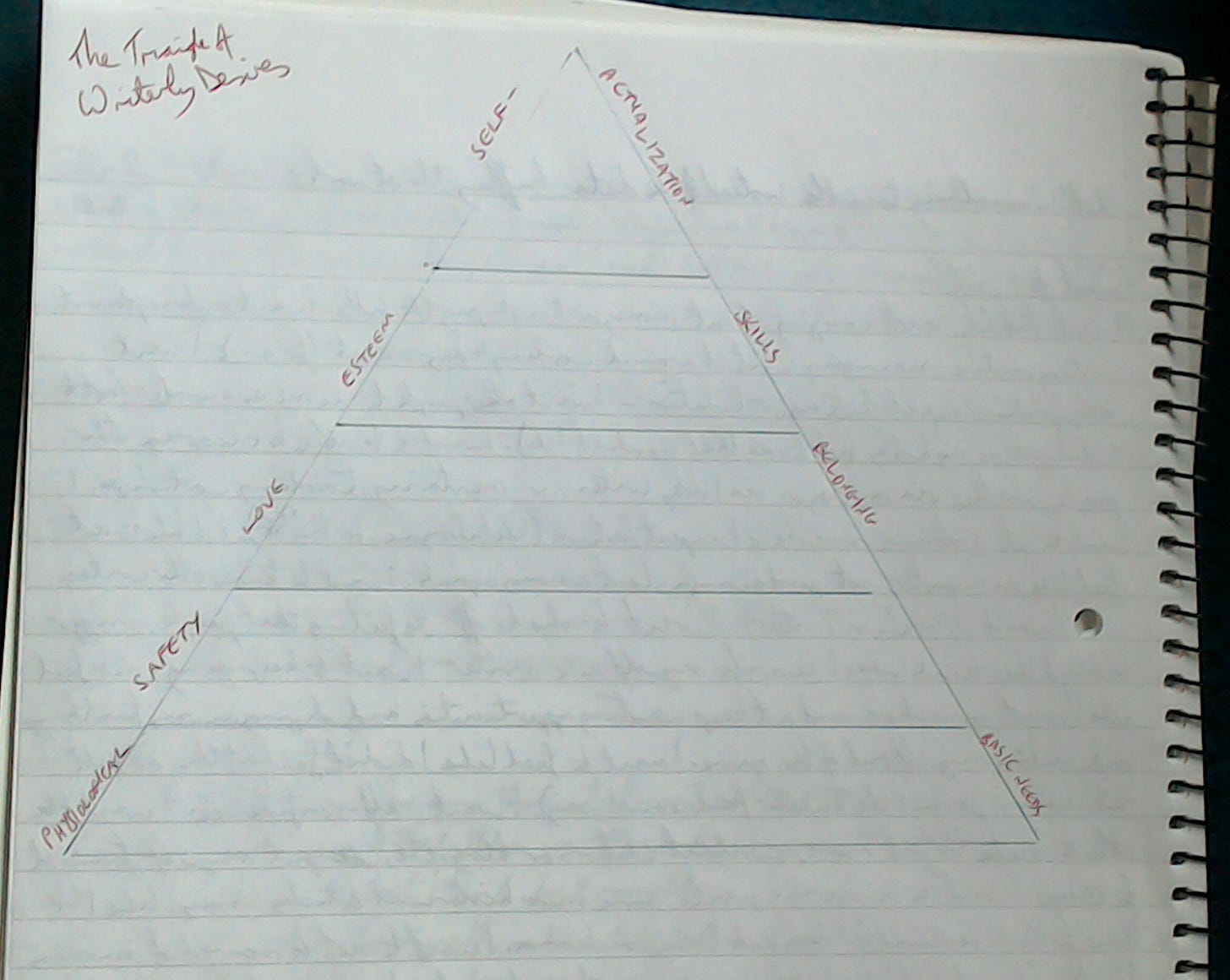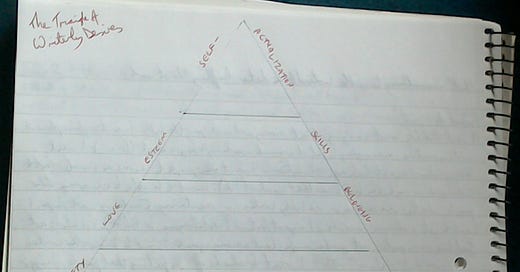Under-represented writers finding their way
I've been working through the new Route-map for under-represented writers from Carmen Marcus this week (if you recall, it's over on her blog that I wrote about embracing my accent). It's even harder than I thought it might be, for some of the reasons she mentions in her explanations.
I want never gets. That was a common phrase in our house, too. And 'making do' is only to be expected when you're being brought up by your Nana, who learnt to manage her own household in the 1940s. I'm still frequently to be heard saying There's nowt wrong with this one, which is how come I've been writing at a laptop with a periodically blue-tinged screen for nearly 2 years, that often requires careful jiggling to be able to read it. This mindset, as Carmen notes, leads to wants being automatically labelled as indulgence. So imagine how hard it is to list your wants and needs as a writer (ssh, ordinary people aren't writers...).
I used to believe my dad that you can't be working class if you've been to university, which meant me and him were different from the rest of the family. In a way, we are - we're the quiet, shy, bookish ones (though Big Brother manages that well enough without a degree) - but mostly we're pretty much the same. It's only by acknowledging the influence of your background that you can work to overcome it. Similarly it's only by acknowledging the deepest needs (confidence, the need to feel like you're not being laughed at by those in the know) that you can figure out where to head next with your writing career. It's no good going to some swanky agent event if you spend the whole time in the toilet because you overheard someone comment on your pairing brown shoes with a dark suit and now you can't face anyone. (Tip: never wear a suit to anywhere that matters, if you don't normally wear suits. Dress to your own rules and no-one can judge if you're doing it 'right' except you.)
So what have I been delving into and enlightening myself with, using Carmen's breadcrumb trail? Well, starting with a list of what you've done so far is an excellent boost for the journey ahead. We should all do this periodically to remind ourselves, I think. Importantly this was about activity, not achievement, so while I didn't count up yesterday how many acceptances I had in 2018, I did note with surprise that I'd made 49 submissions. In one of the worst years of my life, when it felt like I was barely functioning at times, I count that as a major success. I also noted that things that had taken me well out of my comfort zone (like writing a radio drama with a friend then performing it on live radio) were the things I was most proud of and had turned out brilliantly. Maybe if it feels like it's going to be difficult I put more preparation in? Or maybe my strengths lie in places I don't generally acknowledge. Mentoring would definitely take me out of my comfort zone, and every time I've thought about it the little voice in my head goes What have you possibly got to offer? but maybe now is the time to give it a go.
I tried not to agonise over my top 5 inspirational writers. Write down the first five that float to the top of your mind, I thought. Number one? Douglas Adams, naturally. And Stephen King, Terry Pratchett, Anthony Trollope and, interestingly, Stuart Maconie. I listed King, Pratchett and Adams as my favourite authors on my UCAS form in 1995 (I remember a bizarre conversation with - as I recall - Tom McLeish about the science of the Discworld, when I visited Leeds University), and Trollope's been one of my favourites for at least the last 15 years. But what on earth do they have in common? I decided it was probably language that didn't feel writerly (harder to spot with Trollope, but if you make allowances for the era he's writing in...). They're easy to read, chatty for the most part, implicitly or explicitly narrating a tale directly to you, the reader, with asides and interesting facts. There's room for passion, erudition, weirdness, but all so naturally and simply laid out. Whereas I waffle, and use too many parentheses, and rarely cut to the chase. I have a feeling there is much for me to learn here.
Then there's the list of jobs, and what skills and experiences they gave you. There's the one I won't specify that taught me how to have a smoothly professional relationship with a close colleague you loathe in almost every respect. There's being a research student for 2 years, that gave me a good grounding in living with anxiety and self-doubt (definitely useful as a writer). There's a couple of them (particularly one shop) where I learnt to let the back-biting and petty jealousies wash over me - and even though I mainly spend my social media time in a lovely supportive corner of Twitter I get glimpses of that kind of thing now and then.
All that was before I even got as far as Step 2, which I'm struggling with as it's the wants and needs bit. I have to articulate these things, commit them to paper (and those that know me well, know how I hate to 'waste' paper, so writing this list in a notebook took some doing. In fact I avoided all my nice writing notebooks and went to serviceable spiral-bound A4 left over from a project) and then potentially, scarily, share them.

My serviceable, as yet blank, hierarchy of writing needs
So, having managed to write down my top 10 writing goals as the 10 writing goals I'm frightened of, believe aren't for me or are beyond me (did I mention needing confidence?), I think I need to take a break and get some inspiration elsewhere. I'm going to start by re-reading other people's writing experiences at No Writer Left Behind.
If you want Step 1 of Carmen's route-map, you can find it at The Bookseller, who also had an interesting survey of working class people in the book trade this week. Step 2 is at Carmen's blog, where Steps 3-5 will follow, I believe. And if you're interested in all this kind of thing, you might want to listen to Monday's Breaking The Class Ceiling on Radio 4, which includes another vocal working class writer, Natasha Carthew. (No, I don't think classism should be a 'thing', for a start it's impossible to define, but it sounds like an interesting programme). See you next month.



